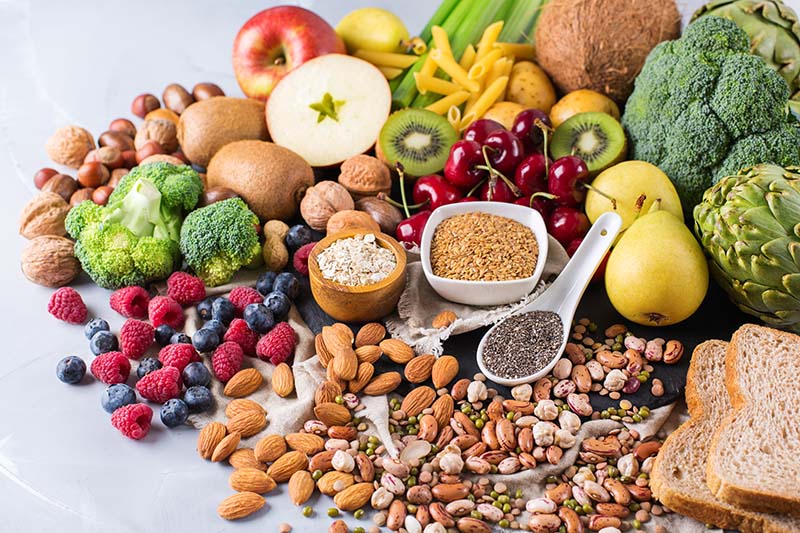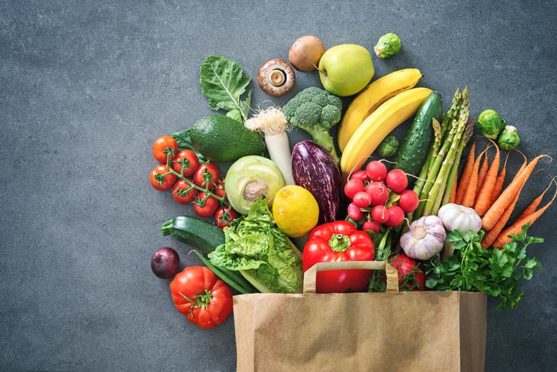Eating healthily can boost your wellbeing in countless ways and bolstering your immune system is just one.
There are certain foods that contain particularly high levels of vitamins and minerals known to boost the immune system. So are these really ‘immune system booster foods’?
Well, yes and no. Eating certain foods can certainly support a healthy immune system and improve your overall health. But they won’t automatically make you able to fight off infections. You’ll only feel their benefit as part of a healthy lifestyle overall.
The experts at BMI Healthcare have compiled a list of some of the best foods you can incorporate into your diet and we are sharing a few here. For the full list, visit the BMI Healthcare website.
1. Garlic
Garlic has long enjoyed a reputation as a star in the world of cold and flu-busting super foods. And it’s not just an old wives’ tale – there’s plenty of research and studies to back up the claims.
Garlic has antiseptic and antifungal properties and contains nutrients including vitamins B1, B6 and C, iron and phosphorus. It is also high in alliin, which converts to allicin. This is thought to be what makes garlic so effective in fighting off bacteria.
As well as working to prevent coughs, colds and chest infections, it can also help speed up recovery once a cold sets in, reducing the duration of a cold by up to 61%.
2. Poultry
It’s not just vegetables that help protect your immune system. Poultry, such as chicken and turkey, is high in vitamin B6, which helps you build new red blood cells.
Both meat from poultry and stock made from the bones can boost your defences. No wonder people eat chicken soup when they’re ill!
3. Mushrooms
Mushrooms contain several key immune system boosting nutrients including selenium, B vitamins (riboflavin and niacin) and zinc.
Various studies have shown the immunity benefits of different types of mushrooms and some suggest that fungi can have antiviral, antibacterial and even anti-tumour effects.

4. Citrus
Citrus fruits are a great source of many nutrients. For example, oranges contain vitamins C and A, B vitamins, calcium and potassium.
Of course vitamin C is the one we most associate with citrus fruits. It’s a powerful antioxidant and also supports the development of white blood cells, strengthening your body’s defence system.
So lemons, limes, oranges, grapefruits and the like can form a vital part of your defence against illnesses such as the common cold.
If you’re on medication, seek medical advice before eating grapefruit as it contains an enzyme that can interfere with certain medicines.
5. Broccoli
There are many reasons to include broccoli in your diet. It is packed with vitamins and minerals, including vitamins A, C and E.
It contains the antioxidant sulforaphane (also found in other cruciferous vegetables such as cauliflower and brussels sprouts), which has been found to boost your immune response.
To make the most of its nutritional benefits, cook broccoli lightly or even eat it raw.
6. Ginger
Ginger has anti-inflammatory and antioxidant properties, which may boost your immune health. Some people find it also helps to reduce nausea.
Add fresh or ground ginger to the base of curries, stews or stir-fries, or to hot herbal and fruit teas.

7. Almonds
Vitamin E is just as important to immunity as vitamin C.
Our body needs fat in order to absorb vitamin E, making almonds the perfect source as they contain both.
8. Spinach
Many regard spinach as a super food. It contains folate, which helps your body to make new cells and repair DNA. It also gives you vitamin C, fibre, antioxidants and more.
But be careful not to cook away its goodness. Eat spinach raw, or steam or boil it briefly and lightly to get the most nutritional benefit.
9. Sweet potato
Sweet potatoes are said to be one of the healthiest foods in the world, offering an incredible array of nutrients. Among these are vitamins A, C and E.
If you keep the skins on you’ll be adding extra fibre and potassium to the list of health benefits.
10. Live yoghurt
The cultures in live yoghurt (which will say ‘live and active cultures’ on the pack) are thought to stimulate the immune system. It contains vitamin D, too, which boosts our defences.
Live yoghurt also contains probiotics. These help keep our gut healthy, which in turn protects our immune response.
